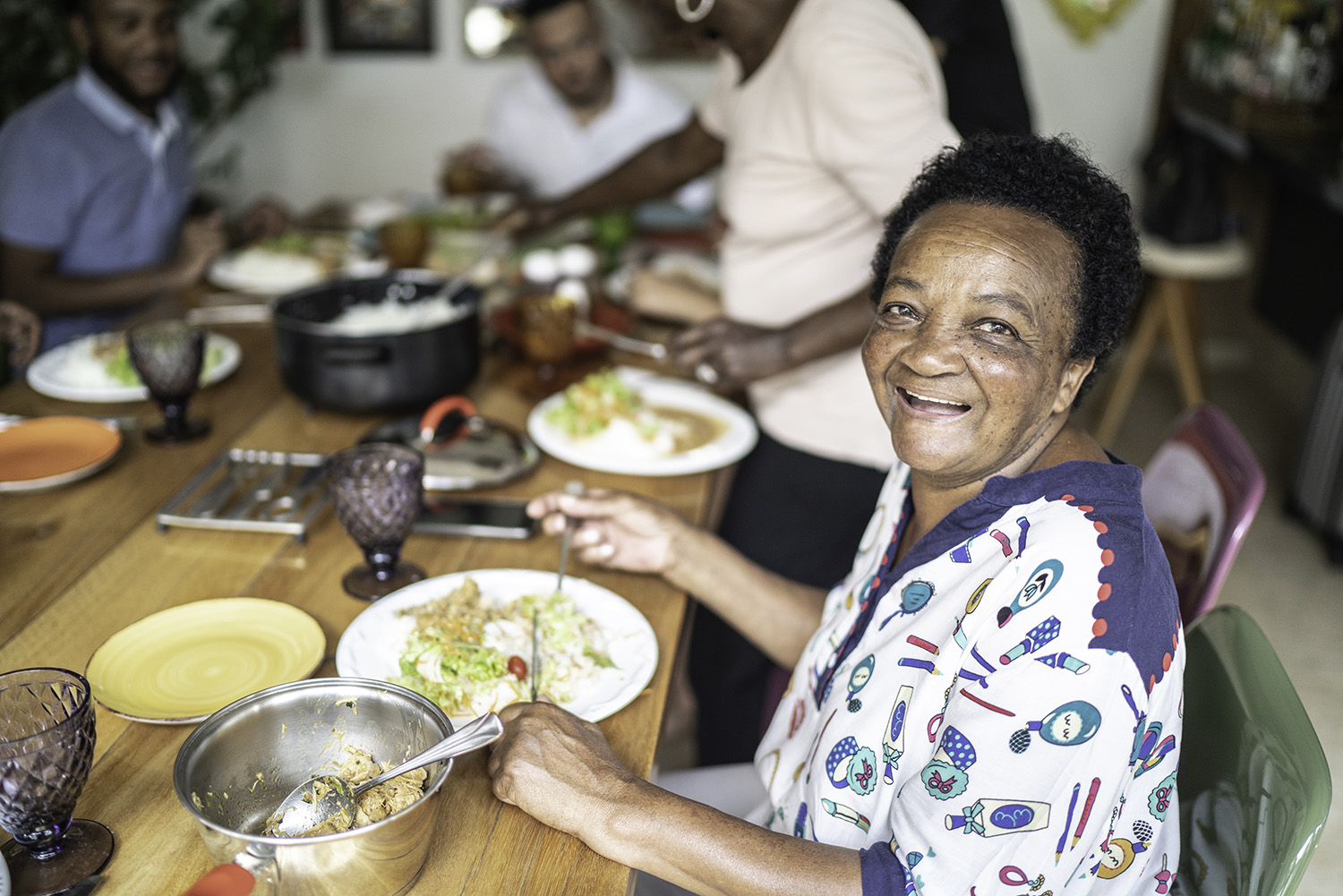 Cultural Competency
Cultural Competency
Older adults are an increasingly diverse group. Nutrition programs must make sure all feel welcome and included by acknowledging that diversity and meeting the unique needs and preferences of those they serve.
 Quick Guides
Quick Guides
- Health Literacy — Guidance for communication and steps to address health literacy
- Diabetes Guide to Foods of African Heritage— Resource from the Association of Diabetes Care & Education Specialists
- Health Equity Guiding Principles for Inclusive Communication— CDC guide to help professionals communicate in a manner that addresses all people inclusively, accurately, and respectful
- Diversity and Cultural Competency — ACL's information page
 Guides
Guides
- Principles of Trauma Informed Care— Publications, resources, factsheets, and evaluation workbook from The Center for guidance to organizations to establish Person-Centered Trauma-Informed (PCTI) protocols.
- Cultural Food Preferences in Food Service— Recommendations and resources from the CDC for adding culturally preferred foods
- Asian American CalFresh Healthy Living Implementation Guide— Tips and insights for working with Asian American audiences
- Inclusive Language Guidelines— Definitions, terms to avoid, and suggested alternatives from the American Psychological Association
- Words Matter: Preferred Language for Talking About Addiction— Guidance from the National Institute on Drug Abuse
- Reframing Language Guide— Guidance from the E4 Center for talking about various communities
- How to Provide Culturally and Linguistically Appropriate Evidence-Based Programs for Chinese Americans— Article from NCOA exploring learnings and best practices for working with the Chinese-American community
- Ageism Factsheet— American Society on Aging resource
 Tools & Toolkits
Tools & Toolkits
- Cultural Toolkits— Brief overviews of cultural food preferences and considerations from SNAP-Ed, with quick guides for Chinese, Latinx & Hispanic, Russian, South Korean, and Vietnamese communities
- Changing the Narrative About Native Americans: A Guide for Allies— Tool to reframe the narrative about Native Americans
- Native Diabetes Wellness Program— CDC program to help prevent type 2 diabetes
- Changing the Narrative— A site devoted to resources and information for "ending ageism together"
- COVID-19 Accessible Resources— Georgia Tech Center for Inclusive Design and Innovation microsite for accessible materials and culturally relevant messages for individuals with disabilities
- Elder Health— Information and resources to support the health of elders from the National Indian Council on Aging, Inc. (NICOA)
- Senior Nutrition Programs Promising Practices for Diverse Populations— A directory of programs that provide culturally sensitive services and program elements important in attracting and serving diverse populations developed by the New Jersey Department of Health and Senior Services
- Older Adults Equity Collaborative— ACL-funded resource library maintained by NYAM
- National Center to Reframe Aging— Resources to change the way we think and talk about aging
- Resources for Serving Persons With Limited English Proficiency— ASPR webpage with links to translation and interpretation services
- American Indian and Alaska Native Health— Medline Plus resources on health concerns for American Indians and Alaska Natives
- Cooking with NYC Aging— Healthy recipes and cooking demo recordings in English, Chinese, Spanish, Russian, and Korean
 Presentations
Presentations
- Cultural Sensitivity: Working with Native Americans— One-hour interactive educational module from the International Association for Indigenous Aging
- Advocacy and Services for LGBTQ+ Elders (YouTube)— 30-minute webinar exploring how LGBTQ+ elders are uniquely affected by social isolation and how to better serve these individuals within their communities
- Advancing Health Equity Through Meal Programs Serving Older Adults (YouTube)— 70-minute webinar on building healthy communities, with accompanying presentation Advancing Health Equity Slides and Advancing Health Equity Takeaway Sheet
- Equity Checkup (YouTube)— One-hour video with NYAM tips for serving diverse older adults and their caregivers
- Exploring Our Own Age-Related Biases (YouTube)— Kansas State University hour-long video presentation on the ways we think about aging, with accompanying presentation Age-Related Biases Slides
- Making Your Meal Program THRIVE (YouTube)— One-hour video about the University of Arizona Center on Aging project, with accompanying presentation Program THRIVE Slides
- Title VI Heart Healthy Traditional Foods (YouTube)— Title VI hour-long webinar on strategies for consuming traditional foods as part of a heart-healthy diet
 Reports
Reports
- Trauma Informed Care Guidance for Aging Services— Strategies from The Center to provide Person-Centered Trauma-Informed care to older adults and family caregivers
- Title VI and Title III Grantee Collaboration Study (2020)
- Understanding the Training Needs of OAA Title VI Program Nutrition and Aging Program Professionals (2019) — Examines the availability of data on meeting the training needs of OAA Title VI nutrition and aging program professionals
- Native Elder Nutrition Education & Training Needs Assessment — Survey on Title VI program staff training needs
- Recommendations for Training Curricula for OAA Title VI Nutrition Program Professionals — Recommendations to improve the administration, implementation, quality, efficiency, and effectiveness of the OAA Title VI Nutrition Program

